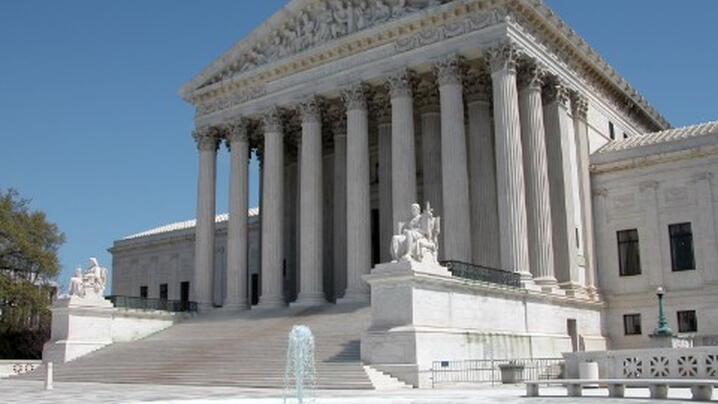
by Lisa Soronen, executive director, State and Local Legal Center
In a 6-3 decision in Murphy v. National Collegiate Athletic Association, the Supreme Court declared the federal Professional and Amateur Sports Protection Act (PASPA) unconstitutional. PASPA, adopted in 1992, prohibits states from authorizing sports gambling. The State and Local Legal Center (SLLC) filed an amicus brief asking the court to rule that PASPA violates the Constitution’s anti-commandeering doctrine.
As a result of this decision, state legislatures can repeal state laws banning sports betting and/or pass laws allowing sports betting. State legislatures can also enable local governments to authorize sports gambling.
New Jersey first amended its constitution to allow some sports gambling. The Third Circuit held that doing so violated PASPA as an “authorization” of gambling but concluded that repealing restrictions on sports gambling would be okay. New Jersey then passed a law repealing restrictions on sports gambling. The Third Circuit changed course ruling the repeal violated PASPA. It reasoned that the repeal “authorizes sports gambling by selectively dictating where sports gambling may occur, who may place bets in such gambling, and which athletic contests are permissible subjects for such gambling.”
The New Jersey governor asked the Third Circuit and the Supreme Court to declare PASPA unconstitutional per the anticommandeering doctrine. The Third Circuit concluded PASPA is constitutional reasoning that it “does not command states to take affirmative actions, and it does not present a coercive choice.” The Supreme Court disagreed.
In an opinion written by Justice Alito, the court first concluded that “authorizing” per PASPA includes state laws permitting sports gambling and states completely or partially repealing old laws banning sports gambling. The court rejected the Third Circuit’s narrower definition of authorizing. “The Third Circuit could not say which, if any, partial repeals are allowed. [The NCAA] and the United States tell us that the PASPA ban on state authorization allows complete repeals, but beyond that, they identify no clear line. It is improbable that Congress meant to enact such a nebulous regime.”
Regarding the statute’s constitutionality, Justice Alito admitted that the anticommandeering doctrine “sounds arcane.” But it is simply the notion that Congress lacks the power to “issue orders directly to the States.” By telling states they could not authorize sports gambling (either outright or by repealing bans on the books), PASPA violates the anticommandeering rule. “[PASPA] unequivocally dictates what a state legislature may and may not do. . . . [S]tate legislatures are put under the direct control of Congress. It is as if federal officers were installed in state legislative chambers and were armed with authority to stop legislators from voting on any offending proposals. A more direct affront to state sovereignty is not easy to imagine.”
PASPA contains provisions prohibiting states from operating a sports betting lottery, private actors from operating sports betting schemes pursuant to state law, and restrictions on both state and private actors regarding advertising sports gambling. The court struck down the entire law concluding none of the provisions are severable—meaning Congress would not have likely enacted them alone.
Richard A. Simpson, Tara Ward, and Emily Hart, Wiley Rein, wrote the SLLC amicus brief, which was joined by National Governors Association, National Conference of State Legislatures, Council of State Governments, National League of Cities, and International Municipal Lawyers Association.
Related Content
Is Gambling a Good Economic Development Bet? This article from 2010 looks at the potential impact of gambling as a part of a communities economic development.
Gambling on the Future. In this 1996 PM magazine article, the focus is on Orange County, Florida, as it dealt with the impact of legalized gambling in the county.
Supreme Court to Weigh Into Sports Gambling and Anti-Commandeering. This blog post from 2017 explains the concept of anti-commandeering and how it applys to sports gambling.
New, Reduced Membership Dues
A new, reduced dues rate is available for CAOs/ACAOs, along with additional discounts for those in smaller communities, has been implemented. Learn more and be sure to join or renew today!
